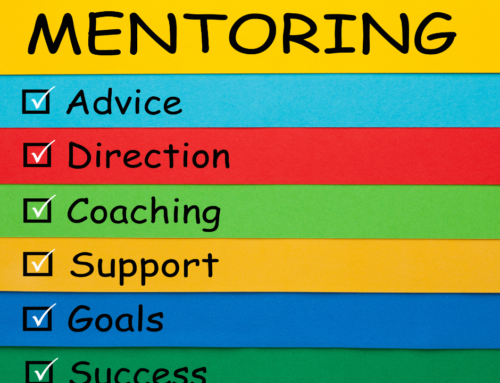Does it Take More Than “Smart” to Be an Effective Supervisor at Work?
A supervisor’s emotional intelligence is not always the first question on a resume, but maybe it should be. While work history, training and perhaps formal education are important criteria for an employment decision, the supervisor’s emotional intelligence will have a significant impact on their ability to lead others and meet company goals and expectations.
The Big Difference Between Emotional Intelligence and Cognitive Intelligence. (or EQ versus IQ)
If I asked you to describe Emotional Intelligence, what would you say? People often answer this question by referring to ‘braininess.’ This is known as Cognitive Intelligence (IQ). IQ tests measure our ability to think and keep large amounts of information. Supervisors need IQ to plan and put in place processes, policies, and procedures.
These are those technical skills I’ve spoken of before. They are the skills that decision-makers usually look for in their new supervisors.
In fact, I recently wrote an article about the importance of providing proper education to new front-line supervisors (and current ones, of course). But my thoughts centered on those ‘soft skills’ that are so vital to their success, not necessarily the technical skills. And often their level of Emotional Intelligence (EQ) will determine this success. Not whether they have any, but more to do with whether they show any.
Supervisor’s Emotional Intelligence Directly Effects Productivity
I am by no means advocating that IQ isn’t important – we all know that it is. But EQ is the social, emotional, personal, political, and survival skills that we need to navigate the challenges in our daily lives. Many skill sets make up EQ, but one is head and shoulders above the rest as being vital for a supervisor’s success.
I’m referring to our ‘intrapersonal skills.’ After all, these allow us to understand and manage ourselves.
It’s this ability to be self-aware that is one of the most crucial leadership skills of all. Emotional intelligence is the capacity to know how we’re feeling, why we’re feeling that way and the impact that feeling has on our behavior.
Emotions are Infectious
Just think of how you feel after spending time with a negative person…or better yet, a positive one!
If you want to know more, a great resource is the work of renowned neuroscientist, Joseph LeDoux. His work was first introduced to us via the book, The Emotional Brain.
A supervisor with good self-awareness knows that they feel irritable and impatient. They also know that their frustration will likely affect their interactions that day. It’s unsettling to work for someone who displays different behaviors each day of the week and isn’t aware of it.
Another intrapersonal skill is that of self-regard. This is the ability to be aware of our strengths and weaknesses.
Supervisors who lack self–regard find it difficult to allow themselves to show weaknesses. They don’t show what we know as ‘quiet confidence,’ nor can they show or understand humility. They blame others rather than acknowledging their own errors.
Sound familiar?
Have you ever worked for a supervisor who didn’t display a great deal of emotional intelligence? I bet you have. I know I have.
“Bob” and His Brand of Leadership
The one I’m thinking of (let’s call him ‘Bob’) appeared to take great delight in pointing out the flaws in the work done by me and my colleagues. Never the positive things, only the negative.
Bob did this in public, either in face to face situations or by delivering cutting comments over the radio network. When this happened, everyone heard and felt it. Think Charles Dickens. The concept of providing constructive feedback in private to employees was likely foreign to him.
Bob may well have had positive intentions behind his actions (I always try to see the glass as half full). But, regardless of the motivations, the result was that my colleagues and I used up a lot of emotional energy trying to avoid him. And on those days when he was away on a course or on holiday, there was a more positive atmosphere in the police station.
Looking back on the experience when Bob was my supervisor, it was not a healthy place to be. His lack of EQ made that much of an impact.
Proving once again, that emotions are infectious.
Emotional Intelligence can be Improved
It’s those front–line supervisors that set the tone for workplace cultures. And it’s the culture of a workplace that creates an environment where you either want to spend time or you don’t. The good news is, you can improve your EQ.
As with anything, we have the capacity to grow beyond what we think is possible. But it’s your mindset and your attitude that will determine whether that’s true for you. Wasn’t it Henry Ford who once said, “Whether you think you can or you can’t, you are correct”?
I encourage you to review Daniel Coleman’s work, the philosophy behind the DISC Program or take part in a Myers Briggs (Step 1 or 2) Type Indicator or other PPA assessment. They will provide you with a description of yourself that you will likely not have heard or considered before.
And that’s a good thing.
But leading the proverbial horse to water and making them drink are two completely different things. A person has to be open to not only hear but also the understanding (and then acting on) what they learn.
I love working with organizations who invest in their staff by having them take an assessment of some kind or other.
When I meet employees from these organizations, they tell me that they were hesitant to take the assessment at first, but they found the results helpful. And they admit that they were generally accurate. They were looking forward to taking the assessment again to see their growth.
You may want to explore emotional intelligence training for your team. 16 Personalities (Myers Briggs in lay terms) is a great place to start. You can offer them a tool for personal growth at no cost to you or the supervisor.






